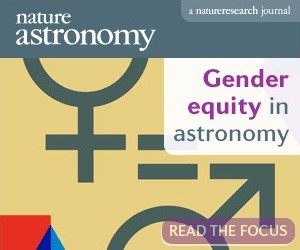 his week's Nature has a glowing review of Karl Marx's Das Kapital[1],
and a review of Al Gore's latest global warming movie written by climate change fanatic
Michael Mann. In the very first sentence Mann uses the politically charged term
“climate deniers” to characterize his critics.
his week's Nature has a glowing review of Karl Marx's Das Kapital[1],
and a review of Al Gore's latest global warming movie written by climate change fanatic
Michael Mann. In the very first sentence Mann uses the politically charged term
“climate deniers” to characterize his critics.
Why is this in there?
That first sentence was all I needed to read to know it was not going to be a scientific discussion, but another expression of political hatred and resentment. Even the selection of the author was a political act by the editors.
Science and politics are opposites. Science is the search for knowledge, following the evidence wherever it leads. Politics is the reverse—it leads the evidence by the nose, dragging it kicking and screaming to a pre-established conclusion. That conclusion is often unpalatable, so it is usually concealed. So what does it mean for science when science gets politicized? Answer: nothing good.

Animated pop-up ad for Nature Astronomy gender issue (animation removed).
I used to overlook it. I suspect most readers skip over the first half of Science and Nature and go straight to the good stuff: the articles on mechanosensory-based rheotaxis in larval zebrafish and the tetrameric architecture of lysosomal potassium channel TMEM175.
But politics is in the air we breathe. It's become so pervasive it can sneak into our writing without us even realizing it. We must learn to recognize and repudiate it. If we don't, it will destroy the credibility of science.
Politics is not always as egregious as an article praising Karl Marx. The current Nature Astronomy has an entire issue devoted to “gender.“ Whether you believe gender is a real thing or a fake pseudo-concept, stars and galaxies most certainly do not have it. So why is it in an astronomy journal?
I canceled my subscription to Scientific American decades ago, and I dropped Science and Nature because they've become too political. I don't care which side they're on: if it's political, it's not science, and I won't pay for it.
Everyone has political opinions, yet some seem not to be able to stop themselves from using whatever platform is available to push theirs onto everyone else. Resentment of politics in science is growing. If scientific journals become partisan mouthpieces, they will find themselves with many critics and few defenders. It could make the creationism wars look tame.
Tunnel vision
It doesn't take much to convince laymen that all our research is based not on science, but on politics. Once that perception becomes entrenched, our credibility will be permanently damaged.
And it will be our fault. A scientific article is never just facts. An author is always proposing some idea. Yet tunnel vision often prevents us from seeing just how politically biased our ideas are. A recent article in Environmental Research Letters[2] by Seth Wynes and Kimberly Nicholas is a perfect example.

Environmentalists see the world in a different way than normal people
Their stated goal is to encourage textbook writers to push their preferred solutions to global warming to young people. Here are their recommendations:
- Have one fewer child (saves 58.6 tonnes CO2 = equivalent (tCO2e) per year).
- Don't use a car = 2.4 tCO2e saved per year.
- Don't fly = 1.6 tCO2e saved per round trip transatlantic flight.
- Go veg = 0.8 tCO2e saved per year.
They considered “not owning a dog” but concluded it's not enough. Besides, people love dogs. No, they say, educators need to tell high school kids not to have children. The implication is that Americans, Canadians, and other Westerners produce more CO2 than other countries, so the best way to save the planet is for them not to exist. They write
For the action ‘have one fewer child,’ we relied on a study which quantified future emissions of descendants based on historical rates, based on heredity (Murtaugh and Schlax 2009). In this approach, half of a child's emissions are assigned to each parent, as well as one quarter of that child's offspring (the grandchildren) and so forth. This is consistent with our use of research employing the fullest possible life cycle approach in order to capture the magnitude of emissions decisions.
The authors' calm, analytical tone conceals the fact that they've just equated a human life with 58.6 metric tons of carbon dioxide per year. These authors are not dummies. They must know doing this in the middle of our demographic crisis would guarantee the West's eventual extinction: if having only one child is good, then having zero children is better.
Did the authors take into account the fact that once Westerners are eliminated, those who take their place will likely care little or nothing about CO2, and instead pursue a growth policy, blaming any problems on the now-extinct Western civilizations? No they did not.
Advocating for a civilization to disappear is as political as you can get. The kindest possible interpretation of this is that the authors have tunnel vision. They can't see it because they're focused on the only thing that matters to them. Imagine if they'd recommended that Africans cease having children—they'd be accused of advocating genocide.
Now, maybe you could say that all articles, even this commentary, contain an element of tunnel vision. Writers must discuss the topic at hand, and exclude all others. But scientists are human beings, and we're supposed to consider how our ideas could go wrong.
When we're paid by a finicky investor or by a capricious government, it influences our perspective. Our credibility comes from a strict adherence to matters of fact, even—or especially—when it means being unpopular.
Those of us who grew up being called “Four-Eyes” every day ought to be used to that by now.
1. http://www.nature.com/nature/journal/v547/n7664/full/547401a.html Nature 547, 401–402 (27 July 2017) doi:10.1038/547401a
2. Wynes S, Nicholas KA (2017). The climate mitigation gap: education and government recommendations miss the most effective individual actions. Environ. Res. Lett. 12(7) 4024. DOI https://doi.org/10.1088/1748-9326/aa7541 Link
created jul 29, 2017; last edited aug 01 2017, 5:52 am

